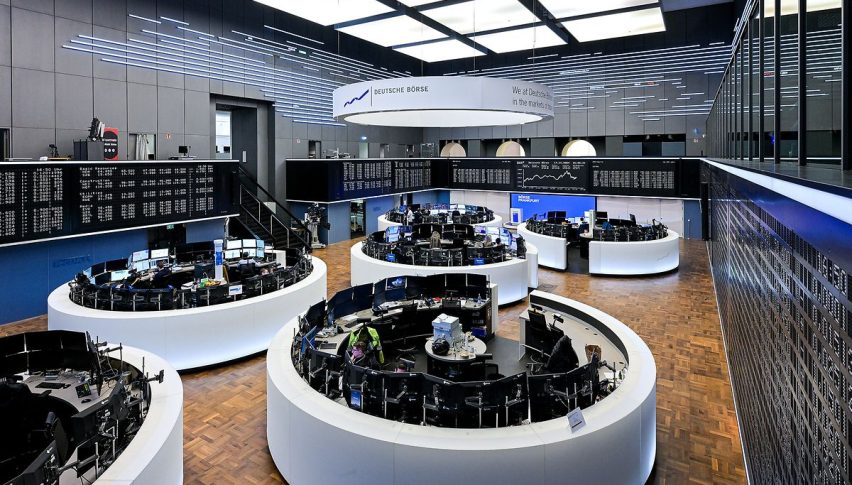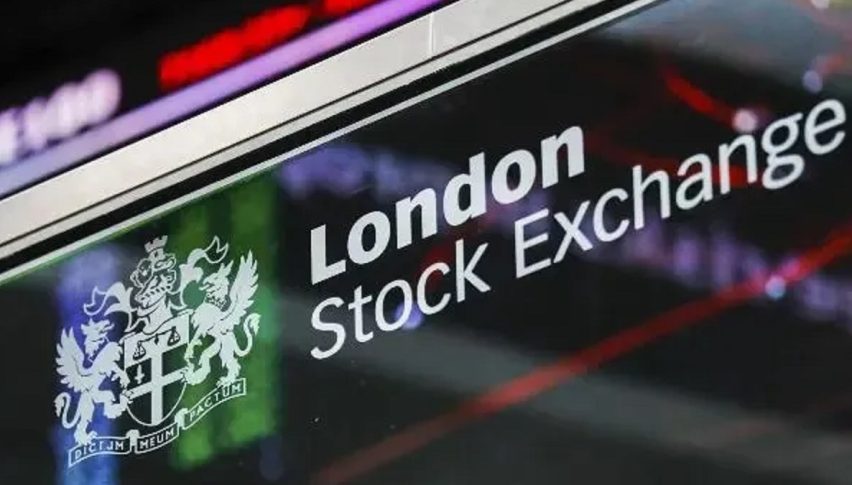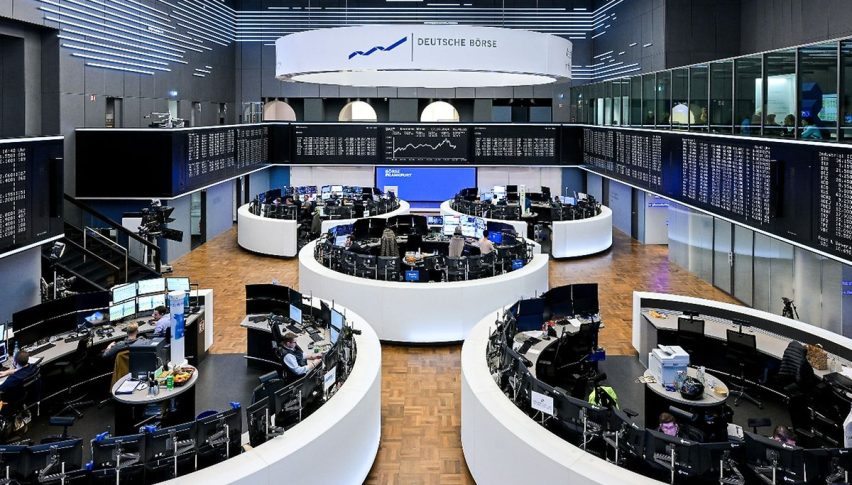DAX Rally Holds Despite Weak Data & Tariff Concerns
German GDP Q1 contracted by 0.2%, while Retail Sales also declined in March by 0.2%. Tariffs remain a concern, but investors hope for negoti

Quick overview
- Germany's GDP contracted by 0.2% in Q1, while retail sales also declined by 0.2% in March.
- Despite weak economic data, the DAX rose by 0.22% as investors remain optimistic about potential tariff negotiations.
- The German economy is heavily reliant on international trade, with a significant surplus of €17.7 billion in February.
- The ECB may need to accelerate its easing policy to counteract the impact of tariffs and support the economy.
Live DAX Chart
German GDP Q1 contracted by 0.2%, while Retail Sales also declined in March by 0.2%. Tariffs remain a concern, but investors hope for negotiations.
- GDP QoQ Q1 Expands 0.2% Contracts 0.2% YoY Q1
- Preliminary Retail Sales YoY Rise 2.2%
- Investors see increasing possibilities for tariff negotiations
The DAX traded higher again this morning, gaining 0.22% as investors brushed aside weak retail sales and GDP data.
Domestic Economy and Trade
The German stock market is heavily reliant on international trade. DAX companies are large exporters and have relied on China and the USA to bolster profits as the domestic economy wanes.
The tariffs announced by Trump caused a large shock in global markets and the DAX saw a large drop. However, investors are betting that negotiations will come through eventually.
For the EU to place reciprocal tariffs on US goods would only hurt even more than it does. The logical way out of the tariff war would seem to eliminate tariffs altogether.
Germany is a net exporter with a massive surplus; February’s trade balance was €17.7 billion surplus.
DAX Live Chart
Weak Data and ECB Policy
Even if the German economy has been contracting over the past 2 years, the DAX has continued to rally. The momentum has come from loosening ECB policy and strong exports.
Today’s data again showed how fragile the German economy is. Although retail sales showed an increase YoY, they were still less than forecast. Moreover, retail sales MoM for March fell by 0.2%.
GDP data for Q1 also showed another contraction, keeping the trend of a shrinking economy on track.
Apart from some initial volatility, the DAX took both of those releases extremely well. The focus is more on ECB policy and tariff negotiations.
Trump’s announcement that auto tariffs would not accumulate with other tariffs gave investors some relief. There is also a lot of talk of negotiations with a large number of countries, giving the perception that deals will be made.
ECB would also help the cause; the central bank may need to quicken its easing pace if tariffs remain.
Lower interest rates in the Eurozone would further weaken the euro and allow for some of the tariff hikes to be offset.
- Check out our free forex signals
- Follow the top economic events on FX Leaders economic calendar
- Trade better, discover more Forex Trading Strategies
- Open a FREE Trading Account




